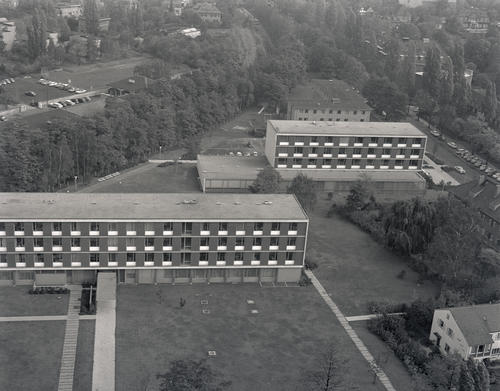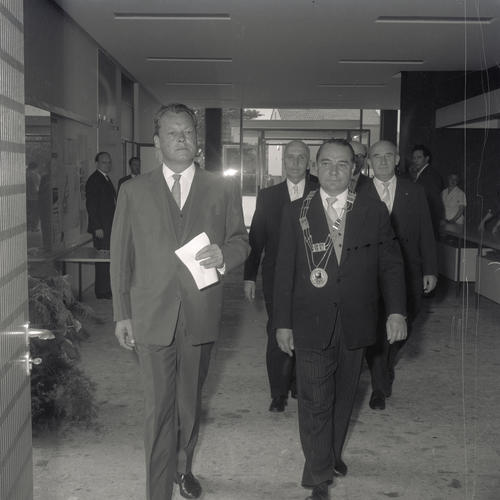Dealing with National Socialism
Fotograf: Reinhard Friedrich / FU Berlin, UA, Foto-Sig. RF0364-06
Fotograf: Reinhard Friedrich / FU Berlin, UA, Foto-Sig. RF0074-05
In the early 20th century, the Institute for East European Studies in Breslau and the Institute for Eastern German Economics (from 1936 the Institute for East European Studies) in Königsberg had been two important academic institutions for the study of Eastern Europe. However, the research work carried out there from 1933 onwards helped plan the German occupation of Eastern Europe and the Shoah after 1939. When the Institute for East European Studies at the Free University of Berlin was founded, the faculty was eager to follow the pre-Nazi traditions of the institutes in Breslau and Königsberg and break with National Socialist views of Eastern Europe. However, a considerable number of OEI members had actually been involved in research on Eastern Europe during the Nazi era. In 1966, Werner Philipp published a detailed analysis of East European Studies under National Socialism – and concluded that “the subject remains shameful and disgusting”. Emphasising the social and moral responsibility of researchers, he confronted his own discipline with its far-reaching guilt for the legitimising preparation of the war and genocide. What he failed to mention in his lecture was that he himself had worked at the Reich Ministry for the Occupied Eastern Territories from 1942 to 1943 as one of the policy makers and deputy head of the Eastern Office.

